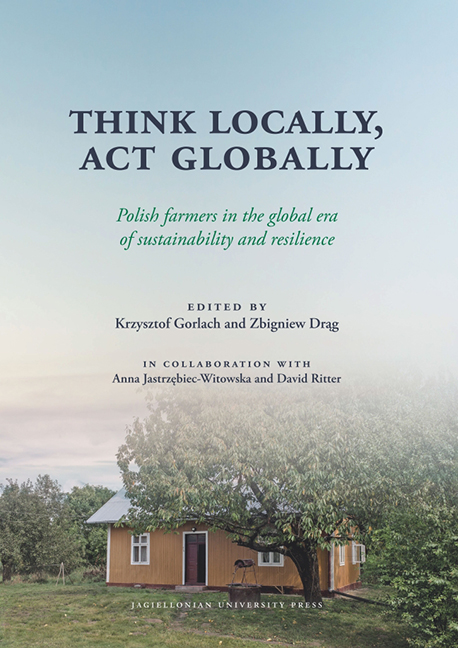Book contents
- Frontmatter
- Contents
- Family Farming: A foreword
- An Introductory Letter from the First Editor: Where the horses, cows, and even cats had their own names
- Part One Theoretical and Methodological Considerations
- Part Two Changes in the Post-Communist Transformation
- Part Three Diversification of Farmers’ Strategies
- Part Four Some Independent Studies
- Conclusion: Some Final Remarks from the First Editor
- Afterword: Renewing a Sociology of Agriculture
- Biograms
Some Introductory Remarks by the First Editor to Part One
Published online by Cambridge University Press: 16 July 2022
- Frontmatter
- Contents
- Family Farming: A foreword
- An Introductory Letter from the First Editor: Where the horses, cows, and even cats had their own names
- Part One Theoretical and Methodological Considerations
- Part Two Changes in the Post-Communist Transformation
- Part Three Diversification of Farmers’ Strategies
- Part Four Some Independent Studies
- Conclusion: Some Final Remarks from the First Editor
- Afterword: Renewing a Sociology of Agriculture
- Biograms
Summary
The first part of this publication contains two, rather extensive, chapters. The first provides a justification for the perspective of the entire research project, which is based on the inversion of the popular slogan originally coined as “think globally, act locally.” Our concept is: “Think locally, act globally.” The inversion aims to transpose the entire tradition of conducting analyses on farmers’ place in the contemporary world within the social sciences. In our view, the activities of individual farmers, small groups of farmers, and families stem from local experience and family tradition or a tradition of local community. For that reason, this chapter covers a variety of issues and examines the related statements that are quite commonly used by sociologists.
To start, this chapter confronts the thesis that the world becomes “flat” as a result of globalization. Quite to the contrary, we, the authors Krzysztof Gorlach, Marta Kle- kotko, Anna Jastrzębiec-Witowska, Grzegorz Foryś, Daria Łucka, and Piotr Nowak, assert that globalization is conducive to highlighting various “non-global” matters, such as local, regional, or even “national” differences. As a result, globalization processes are treated as sequences of intense local-global relations. To conceptualize these relations, in Chapter 1 there are numerous references to neo-endogenous and sustainable development concepts. Specific aspects of these concepts are stressed in the context of changes occurring in rural areas, and particularly in agriculture. The changes affecting agriculture are viewed through the lens of sustainable development, which leads directly to certain aspects of the functioning of family farms and farmers’ decision-making.
Chapter 2, which finalizes this part of the publication, is devoted to the research methodology, presenting two important matters. Firstly, the reader's attention is directed to the multitude of methods applied in this publication. There are both quantitative and qualitative methods, creating a certain mix, with the goal of providing a multifaceted work on the studied reality of family farms in Poland. Secondly, such a methodological blend leads to the type of examination that has been called sustainable analysis.
- Type
- Chapter
- Information
- Think Locally, Act GloballyPolish farmers in the global era of sustainability and resilience, pp. 29 - 30Publisher: Jagiellonian University PressPrint publication year: 2021

